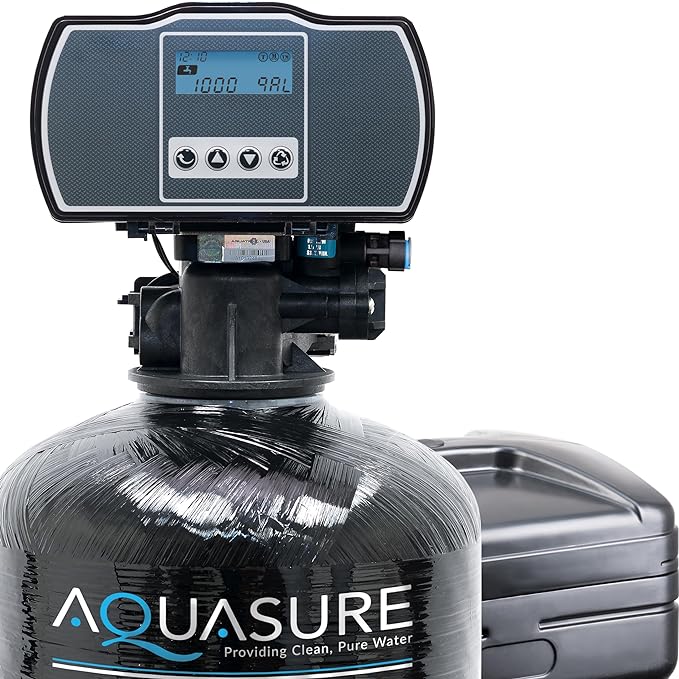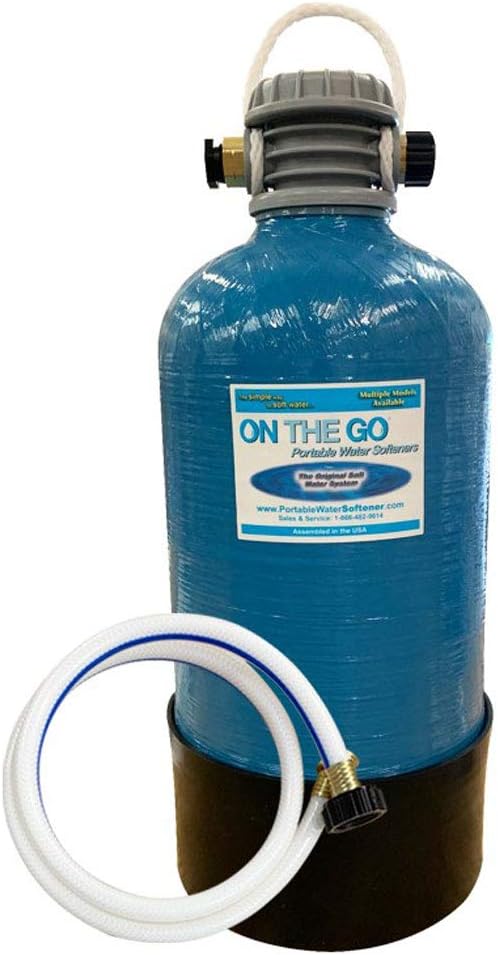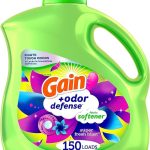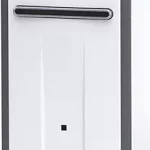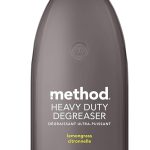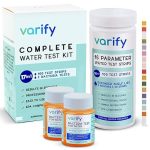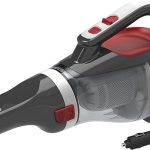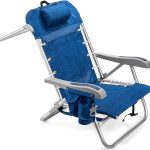When it comes to selecting the right water softener for your home, you’re likely weighing options that balance efficiency, effectiveness, and convenience. You’re searching for a system that not only tackles hard water issues but also fits your lifestyle and budget. You’re not alone in this pursuit, and the good news is that there are standout performers in the market. Among the top-rated water softeners, three models have risen to the top: the Aquasure Harmony Series, the GE Water Softener System, and the On The Go OTG4 Portable Compact Double Standard Water Softener. But what sets them apart, and which one is right for you?
Contents
Aquasure Harmony Series Whole House Water Softener
If you’re seeking a thorough whole-house water softening solution that can tackle moderate to high levels of water hardness, the Aquasure Harmony Series Whole House Water Softener is an excellent choice, capable of treating 48,000 Grains of Hardness and eliminating skin-damaging minerals like iron and magnesium.
This means you’ll enjoy softer skin and hair, and your home’s plumbing system will thank you for reducing scale buildup and potential damage.
The advanced digital metered control head guarantees efficient operation, and the premium quality resin facilitates effective removal of hard minerals.
With its high flow rate of 12 gallons per minute, this system can handle the water demands of a large household.
Best For: Those who live in areas with moderate to high levels of water hardness and are seeking a reliable whole-house water softening solution.
Pros:
- Reduces hardness in water, eliminating scale and spot buildup throughout the home
- Equipped with advanced digital metered control head for efficient operation
- Features premium quality resin for effective removal of hard minerals
Cons:
- Some users have reported issues with lost totalizer gallons and clock inaccuracy
- Hard water may still be present before regeneration
- Requires proper installation and maintenance to ensure optimal performance
GE Water Softener System
The GE Water Softener System is ideal for homeowners who want to tailor their water softness to their specific needs with its exclusive custom select blending valve.
You’ll appreciate the system’s ability to reduce salt consumption by up to 34% with its salt saver feature. Plus, the days to empty feature confirms you’ll never have to guess when to refill the salt tank.
The system also uses up to 35% less water and comes with a sediment filtration system that protects your home’s plumbing.
With easy installation and setup, you’ll be enjoying improved water quality for drinking, laundry, and more in no time. Just be prepared for some patience and troubleshooting during the initial setup process.
Best For: Homeowners who want a customizable water softening system that reduces salt consumption and uses less water.
Pros:
- Customizable water softness with the exclusive custom select blending valve
- Reduces salt consumption by up to 34% with the salt saver feature
- Uses up to 35% less water and has a sediment filtration system to protect home plumbing
Cons:
- Initial setup and testing may require patience and troubleshooting
- Warranty issues may require self-diagnosis and repair by the user
- PVC glue used in installation may cause temporary odor and taste issues
On The Go OTG4 Portable Compact Double Standard Water Softener
Who needs a reliable and compact water softening solution for their home or RV when they’re always on the go?
Stop searching and consider the On The Go OTG4 Portable Compact Double Standard Water Softener.
This 34.4-pound, 10 x 10 x 24-inch device is designed for portability and convenience.
With a 16,000-grain capacity, it’s perfect for small to medium-sized households or RVs.
The OTG4 features drinking water-safe brass fittings and is assembled in the USA.
You’ll enjoy reduced hard water issues, improved skin and hair health, and less mineral buildup.
Plus, it’s backed by a 30-day return guarantee and a product warranty available upon request.
With an impressive 4.7-star rating from 496 customers, you can trust this water softener to deliver results.
Best For: Small to medium-sized households or RV owners who need a portable and compact water softening solution.
Pros:
- Portable and compact design makes it easy to take on the go
- 16,000-grain capacity is suitable for small to medium-sized households or RVs
- Reduces hard water issues, improves skin and hair health, and removes mineral buildup
Cons:
- Requires regular regeneration and maintenance
- May not be suitable for larger households or heavy water usage
- Some customers may find the 34.4-pound weight to be cumbersome for frequent transport
Factors to Consider When Choosing Water Softeners
When choosing a water softener, you’ll want to guarantee several key factors to verify you get the right one for your needs.
You’ll need to think about the quality of your water, the effects of hard water on your home and health, and the size of the system you require.
Water Quality Concerns
You’ll want to weigh the specific water quality concerns in your area, as they can greatly impact the type of water softener you need.
If you live in an area with high levels of iron, manganese, or sulfur, you’ll need a water softener that’s specifically designed to tackle these contaminants.
On the other hand, if your water supply is prone to high levels of sediment or particulate matter, you may need a water softener with a high-capacity filter.
You should also consider the pH level of your water, as acidic or alkaline water can affect the performance of your water softener.
Additionally, if you have a well or private water supply, you may need to test your water regularly to confirm it’s safe to drink.
Hard Water Effects
Hard water’s insidious effects on your home’s plumbing, appliances, and even your skin and hair can be devastating, making it essential to weigh these factors when selecting a water softener.
You may not notice the subtle damage at first, but over time, mineral buildup can lead to clogged pipes, ruined appliances, and higher energy bills. Your skin and hair can also suffer, becoming dry and brittle due to the high levels of calcium and magnesium in hard water.
When choosing a water softener, consider the long-term effects of hard water on your home and body. Think about the cost of replacing appliances and pipes prematurely, as well as the time and money spent on skin and hair care products to combat dryness.
You’ll want a water softener that effectively removes minerals, reducing the risk of damage and health issues. Look for a system that can handle your home’s specific water hardness level and flow rate, ensuring you get the best results.
System Size Matters
To guarantee your water softener effectively tackles your home’s hard water issues, it’s essential to choose a system that’s correctly sized for your specific needs.
You don’t want a system that’s too small, leaving you with still-hard water, or one that’s too large, wasting your money and resources.
When determining the right system size, consider your household’s water usage.
How many people live in your home? What’s your daily water consumption? You’ll need a system that can handle your peak water usage, typically during morning and evening hours.
You should also think about the hardness level of your water.
If you live in an area with extremely hard water, you’ll need a more robust system to tackle the high levels of minerals. Additionally, consider any future changes to your household, such as adding more family members or installing new water-using appliances.
Maintenance Requirements
Regular maintenance is crucial to guarantee your water softener continues to effectively remove minerals from your water supply.
You’ll need to check and clean the brine tank regularly to prevent salt buildup and facilitate proper function. Additionally, you’ll need to monitor the system’s salt levels and add more as needed.
It’s also essential to check for any leaks or blockages in the system, as these can affect the softener’s performance.
You should also descale the softener periodically to remove mineral deposits that can impact its efficiency.
When choosing a water softener, consider the maintenance requirements and whether they fit your lifestyle.
If you’re not comfortable with regular maintenance, look for a system with automated features or consider hiring a professional for maintenance tasks.
Some water softeners also come with maintenance alerts or indicators, which can be helpful in staying on top of maintenance tasks.
Budget Constraints
When setting a budget for a water softener, you’ll want to take into account not only the initial cost of the unit, but also the ongoing expenses that come with owning one.
This includes the cost of salt and maintenance, which can add up over time. Don’t assume that a higher-priced water softener is always the best option – it may not provide noticeably better performance or features than a lower-cost alternative.
Consider the long-term savings of a water softener, such as reduced energy consumption and extended appliance lifespan, when evaluating its cost-effectiveness.
If budget is a substantial constraint, consider a portable or compact water softener, which may be more affordable than a whole-house system. However, be cautious of extremely low-cost water softeners, as they may not provide effective water softening or may require frequent regeneration, ultimately increasing their overall cost.
Frequently Asked Questions
Can I Install a Water Softener Myself or Do I Need a Plumber?
You’re wondering if you can tackle the installation yourself or need a pro’s help. While it’s possible to DIY, consider your plumbing skills and the complexity of your system before deciding to go solo or call a plumber.
How Often Should I Replace the Resin in My Water Softener?
You’ll typically need to replace the resin in your water softener every 8-12 years, depending on usage and water quality, but you must monitor its performance and replace it sooner if you notice a decline in water softness.
Will a Water Softener Remove Chlorine From My Drinking Water?
You’re wondering if a water softener can remove chlorine from your drinking water – a vital question for your health. Fortunately, yes, it can, as most water softeners are designed to eliminate chlorine and other impurities from your water supply.
Can I Use a Water Softener With a Septic System?
You’re wondering if it’s safe to use a water softener with a septic system. Yes, you can, but make certain the softener’s brine discharge doesn’t exceed 1-2 gallons per day to avoid overwhelming your septic tank.
Are Water Softeners Safe for Households With Pets That Drink Tap Water?
You wonder if water softeners are safe for your furry friends drinking tap water. Rest assured, they are! Water softeners only remove minerals, not adding toxins, making tap water safe for your pets to drink.
Conclusion
As you stand under the warm shower, feeling the soft water envelop your skin, you’ll appreciate the effort you put into choosing the right water softener.
Imagine the gentle touch of silk-like water, free from harsh minerals, and the peace of mind that comes with knowing your appliances and pipes are protected.
With the right water softener, you’ll be sipping coffee, washing dishes, and enjoying life’s little luxuries without the hassle of hard water.
